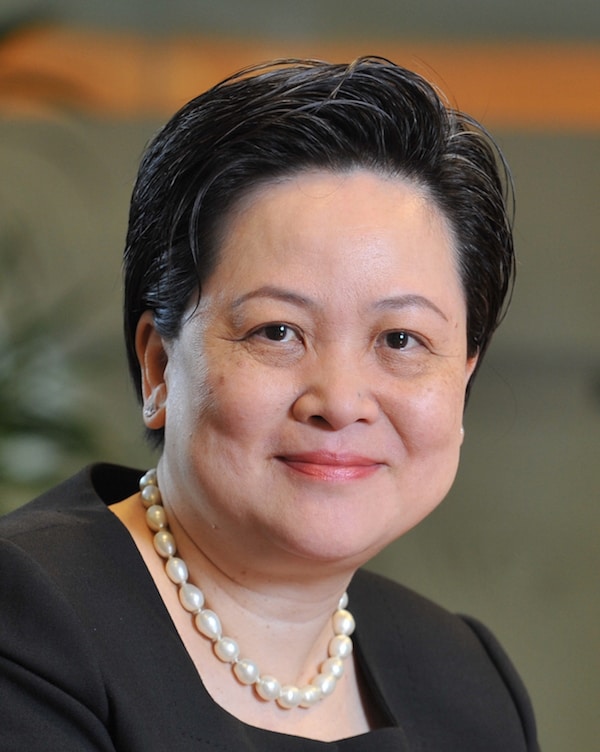In August this year, Euronext announced it has entered into a definitive agreement to purchase a 20% stake in EuroCCP for €14 million. Chief executive officer at EuroCCP, Diana Chan, talks to The TRADE about what the acquisition means for the firm and gives her thoughts on the consequences of the London Stock Exchange (LSE) and Deutsche Boerse merger.
Hayley McDowell: What’s the latest on the deal with Euronext?
Diana Chan: The deal was first announced in May and we reached a definitive agreement in August. The next step is to get regulatory approval. EuroCCP is a market infrastructure. Our regulators are De Nederlandsche Bank (DNB) and the Netherlands Authority for the Financial Markets (AFM). They need to be assured that new shareholders are fit and proper. Euronext is an exchange, just like two of our existing shareholders Nasdaq and Bats Europe. On Euronext’s side, regulators need to approve the appointment of a CCP, because an exchange is required to have post-trade arrangements run in an orderly fashion.
Both of these processes are ongoing and have been since we announced the definitive agreement in August. Once the regulatory approval process has been concluded we will close the deal and Euronext will acquire 20% of EuroCCP.
HM: What does the deal mean for EuroCCP?
DC: We will broaden our shareholder base to become 60% owned by exchanges: Bats Europe, Nasdaq and now Euronext. These three exchanges account for 44% of trading volume in Europe in value and 40% by the number of transactions. This is a clear sign that exchanges who compete with each other in equities trading can have a shared ownership of clearing infrastructure as a strategic option. The governance of EuroCCP is very egalitarian. The shareholders have joint and equal governance of EuroCCP.
In general, shared infrastructure is a business model worthy of further examination by other exchanges. I say that because a share is a fungible financial asset and it doesn’t matter where it is traded. In order to trade where there is best execution, firms should be looking at different trading venues.
However, if there is not a common clearing infrastructure - or CCP – for the same shares, the total cost of trading will be higher than is necessary. No matter where a share trade is executed, it should be possible for a firm to direct that trade to its CCP of choice for clearing, and for that trade to be netted with all other trades executed on the same day. Euronext will join 10 other platforms cleared by EuroCCP that are trading the same shares.
HM: What are your thoughts on the proposed DB/LSE merger?
DC: The merged entity will have a number of equities CCPs in the group, including LCH Clearnet Ltd, LCH Clearnet S.A., CC&G and Eurex with combined access to 95% of equities trades in Europe. About a quarter of this volume is cleared without competition, giving the merged group significant market power.
One solution would be for exchanges in the merged group to open up to interoperating CCPs. We will have access to Euronext at the conclusion of the deal later this year, but that still leaves two very important exchanges - Deutsche Bourse and Boerse Italiana - that are only accessed by CCPs in the merged group.
HM: What does that merger mean for EuroCCP?
DC: It means we have to get the attention of market participants and investors to recognise what the deal could mean to the future all-in cost of equities trading in Europe. We must use the opportunity to highlight the fact that the end goal is for all of Europe to be connected via clearing. MiFID has done this for competition in equities trading and now we need to work on clearing.
MiFID II has a provision for the right of CCPs to request access to exchanges, which can be denied on risk grounds. Giving access to CCPs is really an exchange’s commercial decision. We have managed to make 70% of equities trades in Europe interoperable and competitively cleared, without reliance on regulation. The remainder can likewise open up to competitive clearing well ahead of the MiFID II January 2018 implementation date.
HM: What’s new at EuroCCP at the moment?
DC: At the moment we are working on securing equal access of interoperating CCPs to all the platforms that are cleared by at least one of the interoperating CCPs. Oslo Børs is currently cleared only by LCH and x-Clear and the London Stock Exchange’s International Order Book is cleared only by LCH. We hope that we will be granted access as soon as possible. The reason this is important is because of the structure of the fees.
All CCPs – like other businesses – give volume discounts. If a firm has to leave behind some trades with an incumbent CCP because its CCP of choice has not been given equal access to all the platforms, these left-behind trades will attract a disproportionately high cost and become a disincentive to switching. The playing field needs to be level for competition to deliver its intended benefits. Level playing field requires equal access to all platforms by interoperating CCPs.
